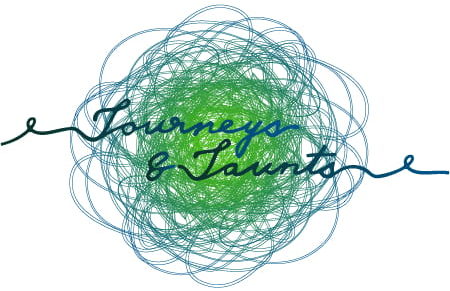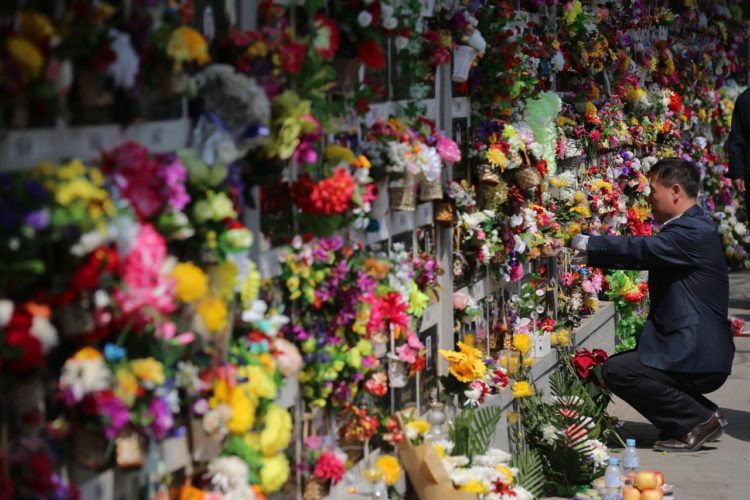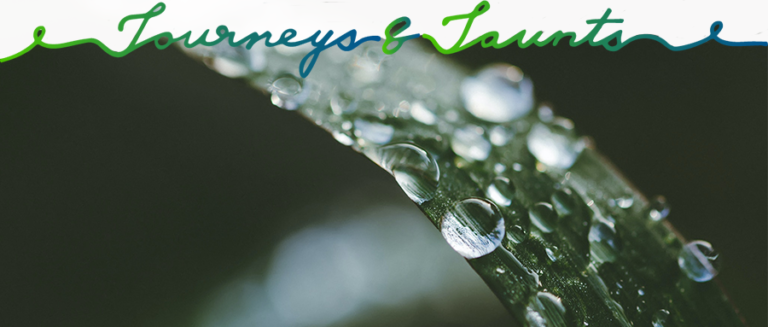I think everyone knows and feels happy about the upcoming 3-day holiday – from April 3rd to April 5th (finally, we will have some time off to enjoy the spring weather). But does anyone know what the Chinese are celebrating? The coming festival’s name is Qingming Festival, or Tomb-Sweeping Day, as it is better known in English. Chinese people (and also some other Asian nationalities) usually celebrate it around April 4th – 5th. The exact date is dependent on the Solar Calendar, because the festival falls on the first day of the fifth Solar Term. If you want to know more about the Solar Terms, please check this article. So, according to the Gregorian Calendar, in 2022, Qingming is on April 4th.
Behind this festival, there is, of course, a legend. The Chinese believe that Qingming originated from the so-called Cold Food Festival (or Hanshi Festival). The legend itself is connected with the name Jie Zitui, who loved his lord so much, that he cut a piece from his leg to feed his lord, who was forced to go into exile when the crown was in jeopardy and was suffering from hunger at that time. Some years passed, lord Chong’er returned to his position and forgot what Jie did for him. Soon Chong’er felt ashamed and decided to reward his loyal retainer. However, Jie had blocked himself up in a mountain with his mother. To find Jie, the lord ordered to set the mountain on fire. Later Jie and his mother were found dead. In order to commemorate Jie, the lord ordered that the day Jie died was Hanshi (Cold Food) Festival – the day when it was forbidden to use the fire, so only cold food could be eaten.
As you can probably guess from the English name of the festival – Tomb-Sweeping Day – it is an occasion for the Chinese to visit their ancestors’ graves, give offerings of food, tea, or wine and clean or sweep the tombs, to honor their memory and to pray. Young and senior members of the family try to do it together – it serves as one more reason to spend time with everyone. So, the people who live away from their hometowns try to return home to follow this tradition together with the whole family.
Qingming festival does not end with commemorating ancestors, however. After this most important part of the celebration, Chinese families continue the festivities. The festival is held in the beginning of April, so the temperature in all Chinese regions is rising. And usually on this public holiday, the weather is so nice that families like to spend the rest of the day outside – in the parks, gardens, or simply the country side. You will see it yourselves that it is a perfect time to enjoy the coming spring with its warmth, flower blossoms and the shining sun (hopefully, the air quality is going to improve as well).
One of the favorite Chinese traditions on this festival is flying kites. People of any age like to fly them not only during the daytime but in the evenings also. People like to attach little lanterns to the kite or its line. This adds a unique and fairylike quality to the night sky – and makes the atmosphere really special.

If you usually read the articles on this blog, you know that there is no Chinese festival without “food specials”. The Chinese like symbolism every day of their lives, so all Chinese dishes, fruits or vegetables have their own meaning. According to this, they choose dishes that “suit” certain celebrations. Just remember such celebrations as the Chinese New Year’s Eve Dinner, the Lantern Festival, or Mid-Autumn Festival. Guess – what could the Chinese be preparing for Qingming Festival?
As the Tomb-Sweeping Day originated from the Cold Food Festival, there is a tradition not to use fire, which means that people ate only cold foods. Nowadays, (not everyone but many) people continue to follow this tradition. When talking about the exact dishes – each region has their own. Traditional Qingming festival foods include sweet green rice balls, peach blossom porridge, crispy Qingming cakes, Qingming snails, and eggs. These foods are usually cooked one or two days before the festival date.
Green rice balls, 青团 (or qīngtuán in Pinyin) are made of a mixture of glutinous rice powder and green vegetable juice, and stuffed with sweetened bean paste.
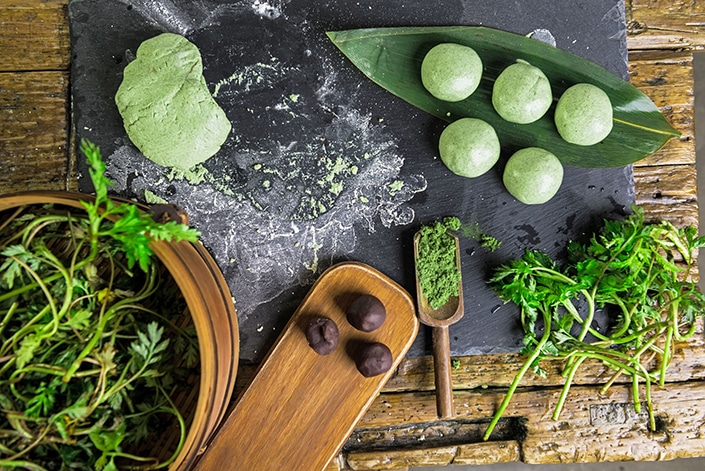
Qingming cakes are called sāzi (撒子) or hánjù (寒具). They are a crispy fried food, made of wheat flour or glutinous rice flour, eggs, sesame, onion, salt, and other ingredients.

Peach blossom porridge is a kind of porridge cooked with fresh peach blossoms and rice.

Qingming snails is a dish cooked with snails, onions, ginger, soy sauce, cooking wine, and sugar, but also eaten cold.
Pre-COVID, Qingming Festival was also a busy travel period (especially when people have more than two days of vacation). Some people would return to their hometowns, some people would travel together with family members to the main tourist attractions. So, if you don’t mind having to quarantine should you run into any cases on your travels, you should think about train or plane tickets in advance.
With the world’s modernization, many customs are forgotten, or (what is even worse) new technologies warp the old traditions. In the case of Qingming Festival, this has led to a new commercial market for selling cheap replica iPhones, wi-fi routers and other gadgets for family members to give as offerings.
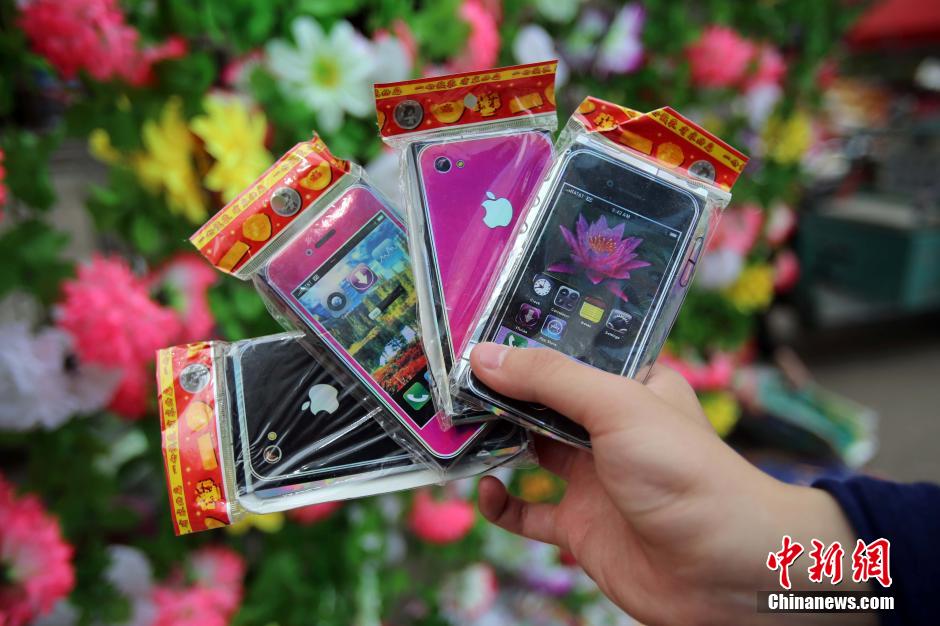
Another modern trend has seen a host of online stores offering “tomb-sweeping packages” for people who are too preoccupied or busy to mourn their ancestors themselves. Companies are now advertising professional mourners to grieve in the families’ stead. Packages range from simple tomb-sweeps to more comprehensive packages which include services such as bowing, giving gifts and sobbing at the grave. I guess #thisisChina – thousand-year old traditions with a modern twist.
